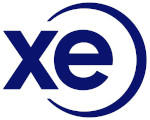Finances may be the farthest thing from your mind – but don’t get caught unprepared! When it comes to understanding the U.S. tax system, a little bit of information can go a long way in helping you to avoid pitfalls. Read on for a brief overview of U.S. income tax and how to be compliant without paying too much.
How the U.S. taxes income
The U.S. taxes all residents on their worldwide income. Federal income tax is based upon a tax rate which generally increases as income increases (marginal rates). Most states and many local governments impose separate income taxes as well. There are many tax credits, deductions and allowances which can be used to reduce your tax burden; these are discussed in the following section.
A worldwide income tax means that if you have earned income or have other investment-related income (interest, dividends, and capital gains) outside of the U.S., you must report this to the Internal Revenue Service (IRS) and pay taxes. Depending on where you are from, you may also need to report some income and investment gains back to your home country. Many expats are concerned that they will be taxed twice, once by their home country, and again in the U.S. Worry not. The IRS uses a system of foreign tax credits which helps to eliminate the risk of double taxation. In addition, the U.S. has tax treaties with many countries in order to further eliminate double-taxation.
Green card holders should take special note that moving outside of the U.S. does not end their obligation to file taxes in the U.S. As long as you are granted U.S. residency privileges, you are subject to taxation by the IRS.
All expatriates in the U.S. should consult a qualified expatriate tax advisor who specializes in U.S. tax and tax integration with their respective home country. You should seek an independent review even if your employer offers you free tax filing assistance.
How to reduce your tax bill
As mentioned above, there are many tax credits, deductions, and allowances which may be applied to reduce your taxable income. We will briefly discuss the most common ways to reduce your taxable income here; again, it is wise to consult a qualified expat tax advisor to ensure you are taking full advantage.
Personal exemptions – Individuals are entitled to a Personal Exemption that reduces the amount of income on which you are taxed. For 2011 this amount is $3,700. An exemption may be used for the tax filer (or joint filers) and any individuals whom the filer supports and claims as a dependent for tax purposes.
Retirement savings account contributions – Another way to reduce taxable income is by contributing to your employer’s 401(k) retirement savings plan. 401(k) plans are the most common type of retirement savings benefit offered by employers in the U.S. The amount you choose to contribute to such a plan is deducted from your paycheck pre-tax and is deposited into an investment account in your name. For 2011, individuals can contribute up to $16,500 per year to 401(k) plans ($22,000 for those over 50 years old). If your employer does not offer a 401(k) plan, you may contribute to an Individual Retirement Account (IRA).
These deposits also reduce your taxable income. Individuals may contribute $5000 per year to an IRA account ($6,000 for those over age 50). Beware that these contribution limits may be reduced if your income is very high.
Other deductions – The U.S. also offers a standard deduction which may be applied to income to further reduce your tax burden. The standard deduction for individual tax payers in 2011 is $5,800 ($11,600 for married filing jointly). Alternatively, you may choose to itemize certain expenses on your tax filing to further reduce your taxable income – that is if they are higher than the standard deduction. Examples of itemized deductions include: state and local taxes paid, property taxes paid, mortgage interest paid, business expenses, health insurance premiums, certain healthcare expenses, charitable contributions, and more. You should always consult with a tax advisor to confirm that you are eligible to claim these deductions.
How to be tax compliant - where to hold investments
It is wise for anyone who is required to file taxes in the U.S. to also hold their investment assets in the U.S. This is because the IRS requires special tax reporting documents to be supplied along with your tax filing in order to verify investment income and calculate the appropriate taxes. Most investment companies outside of the U.S. are not able to produce the proper reports, which often results in more punitive tax treatment of the underlying investments. Expatriates are wise to consult an investment advisor that specializes in expatriate financial planning and advice in order to ensure that they are in compliance with U.S. requirements.
This article was written by Jeannie Pedersen, Senior Portfolio Manager at Maxim Global Wealth Advisors, a premier wealth advisor for American expatriates and expatriates in the US. http://www.maximadvisors.com




